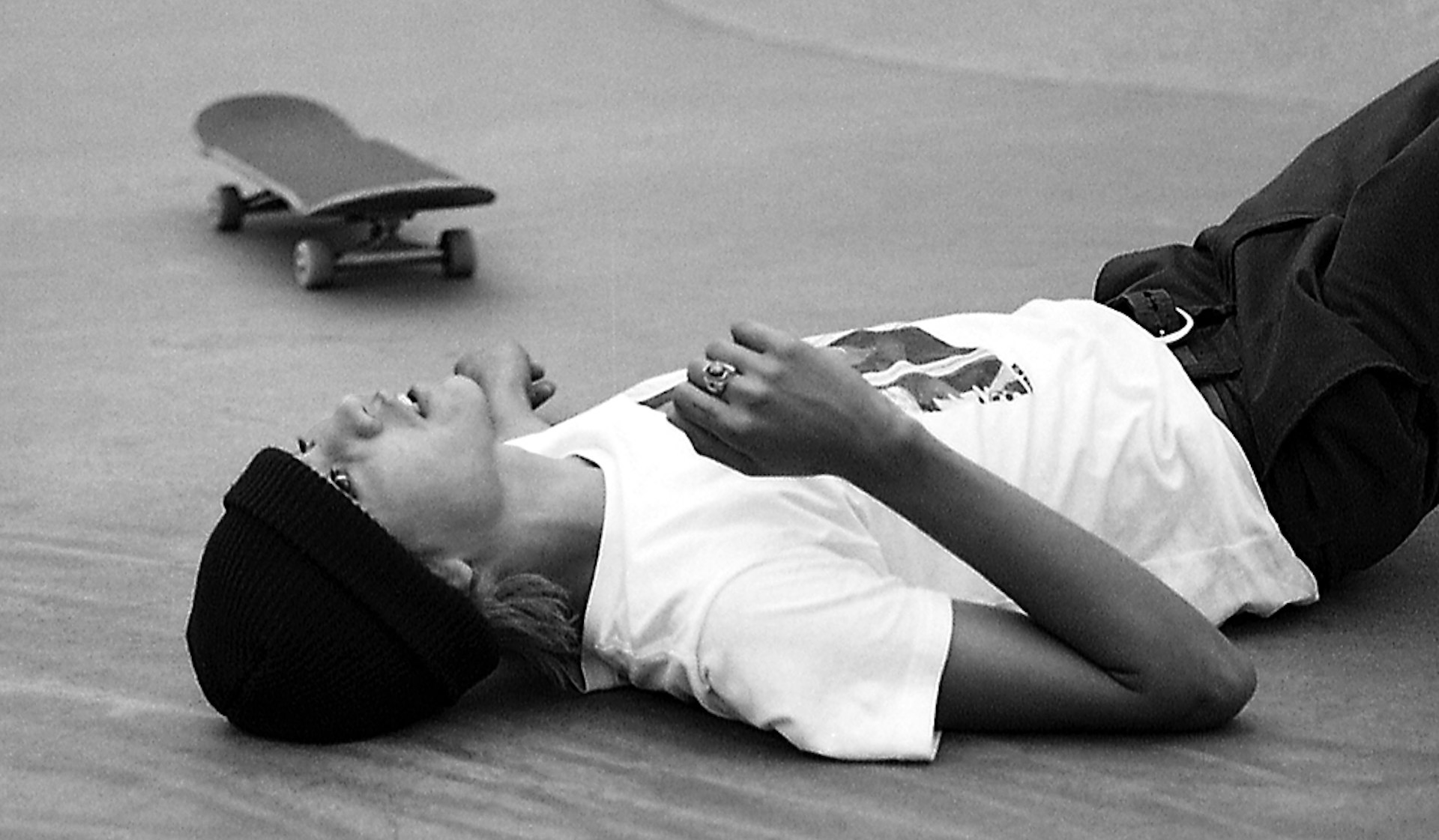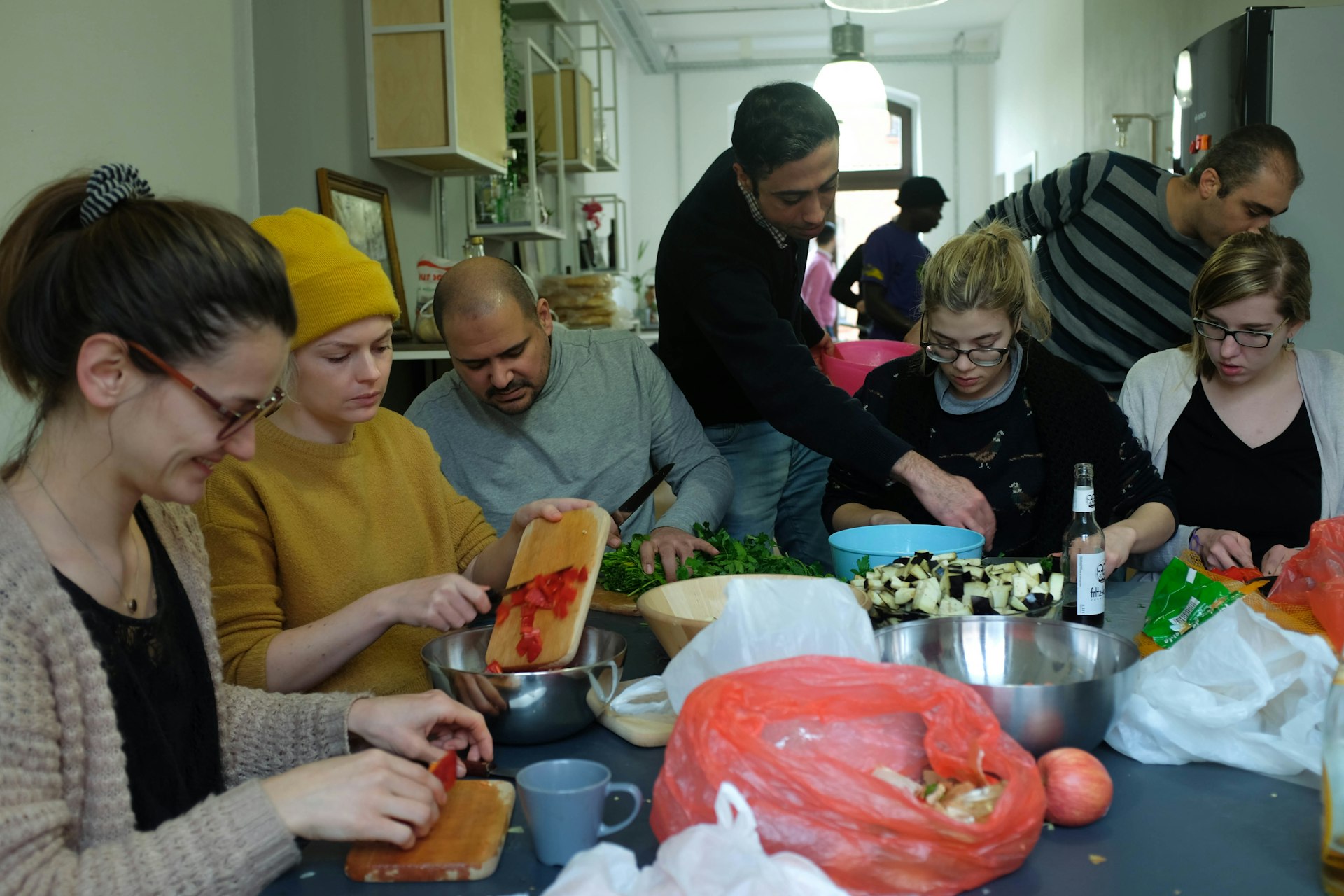
Refugees and young Berliners are finding community through food
- Text by Merlin Jobst
- Photography by Merlin Jobst
Over the last two years of information and misinformation surrounding the refugee crisis, one single figure has stuck out: that over a million people fleeing war and oppression have been taken in by Germany. Lovely, benevolent Germany – which, for all its problems with a swelling far-right, seems to have consistently had the backs of those seeking asylum in a way no other nation in the EU has managed. But to what extent is this really true?
Well, in numbers, pretty much entirely; Germany has taken in more refugees than any other nation in Europe (roughly 50 to every one taken by the UK), alongside a steady stream of casual immigrants (this author included) from all over the world. However, keeping the borders open is about as far as the German government have been willing to go, and this lack of preparation for publicly welcomed arrivals is more starkly obvious in Berlin – a city torn between radical counterculture and infamous German bureaucracy – than perhaps anywhere else.
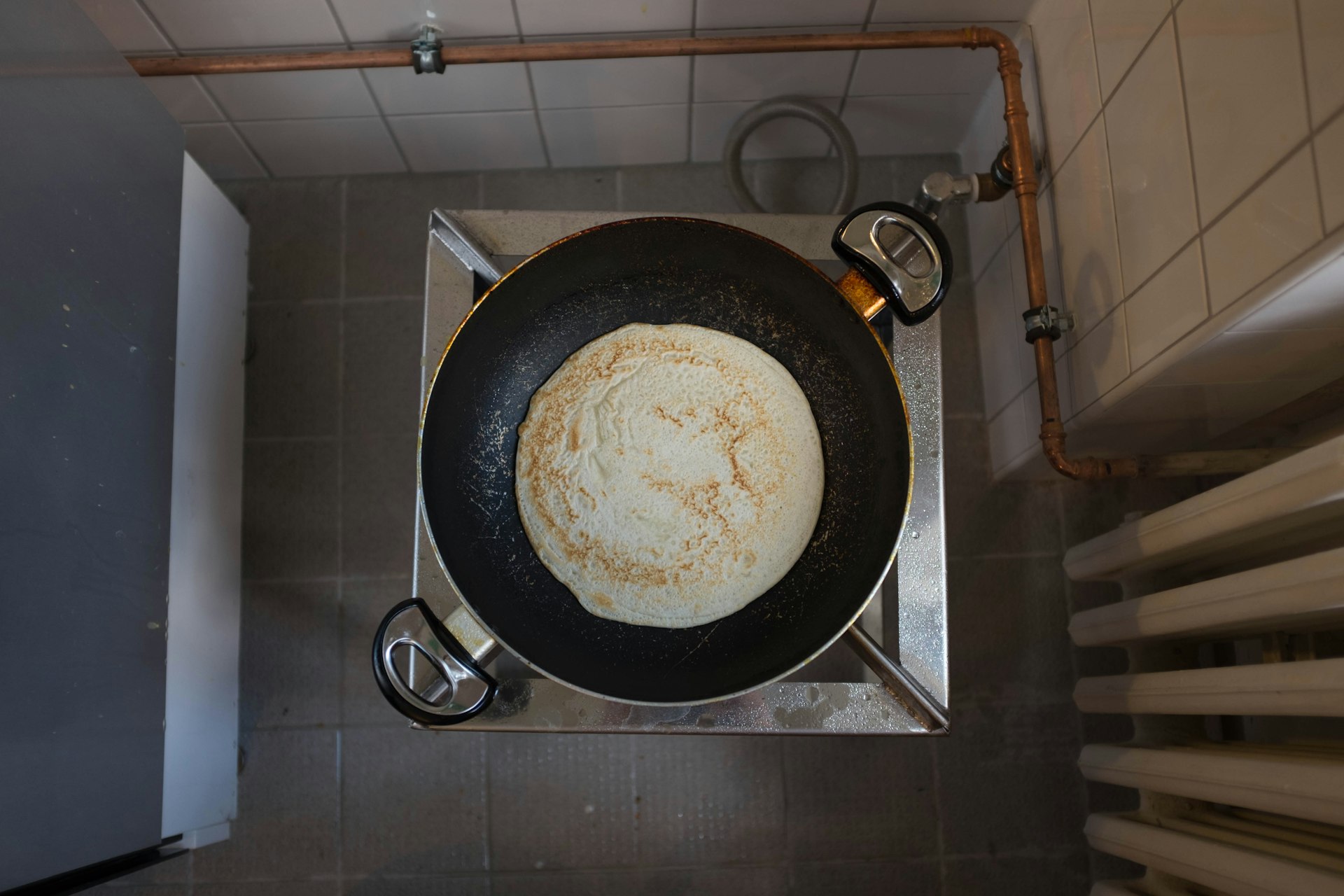
The capital has become Europe’s poster-city for both humanitarian aid and cultural diversity over the last few years. Shelters have been set up in abandoned shopping centres, school buildings, office blocks, and even a legendary local derelict airport – all of which are nestled within a highly active city environment. However, the real issues with Germany’s answers to the crisis lie not in these makeshift shelters (which followed protest action during the harsh winter of 2013 in which Oranienplatz, a square in the heart of Berlin’s overtly cool borough of Kreuzberg, became home to a dense, ramshackle camp), but in its integration.
In terms of governmental process, little has changed or been updated in Germany for decades. This means that even getting an appointment for anything vaguely related to the state is done in person or by post, and, without exception, in unforgivingly bureaucratic German. To enter the country by the book is a challenge, even for a privileged European newcomer; for somebody arriving in more desperate circumstances, without papers, contacts, possessions, or the ability to easily communicate – not to mention in the face of furious anti-migrant rhetoric from nationalist parties such as the AFD (Alternative für Deutschland) and aggression from their supporters across the country – it’s near-impossible.
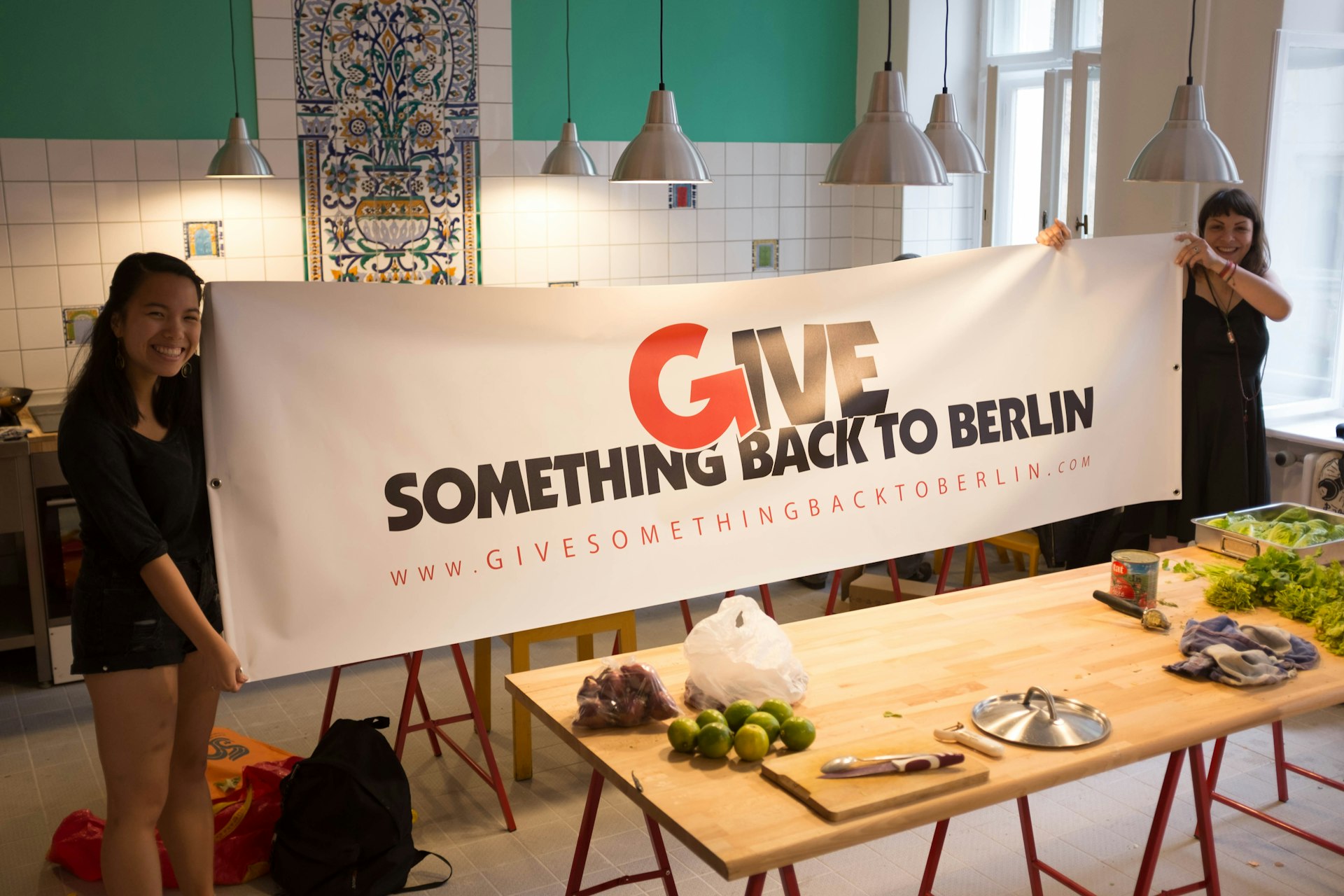
It is partly for this reason that the NGO Give Something Back to Berlin exists – to help the city’s enormous migrant population connect with the bursting inclusivity synonymous with Berlin society, using spaces of social cohesion and community such as the food scene. Where the state fails to act, young people are filling in the gaps.
On that freezing Kreuzberg platz in 2013, in the nucleus of one of the most desperate humanitarian crises in recent memory, Give Something Back to Berlin conceived an initiative that is to this day helping displaced newcomers enter society, through our shared need to eat. The Refugee Cooking Group was created by British tour guide Lorna Cannon, who saw a need to create and nurture community in a highly charged environment of political and social unrest.
Three years later, it’s still running, and the formula remains simple: the group provides ingredients and equipment to a growing and ever-more familiar group of refugees, immigrants, and locals, all of whom prepare ingredients to the specification of the elected ‘head chef’, who will, with the help of fellow refugee cooks, prepare a feast of recipes from their home country for those in attendance.
The results can be extraordinary (not to mention mouthwatering); a space in which migrants of all backgrounds can integrate with Berliners in a safe, positive space. The benefits can reach further than one might think; according to Amjad Aldhna, a Syrian refugee in his mid-20s who regularly cooks cuisine from his home with the group, the organisation has been integral to him beginning to rebuild a new life.
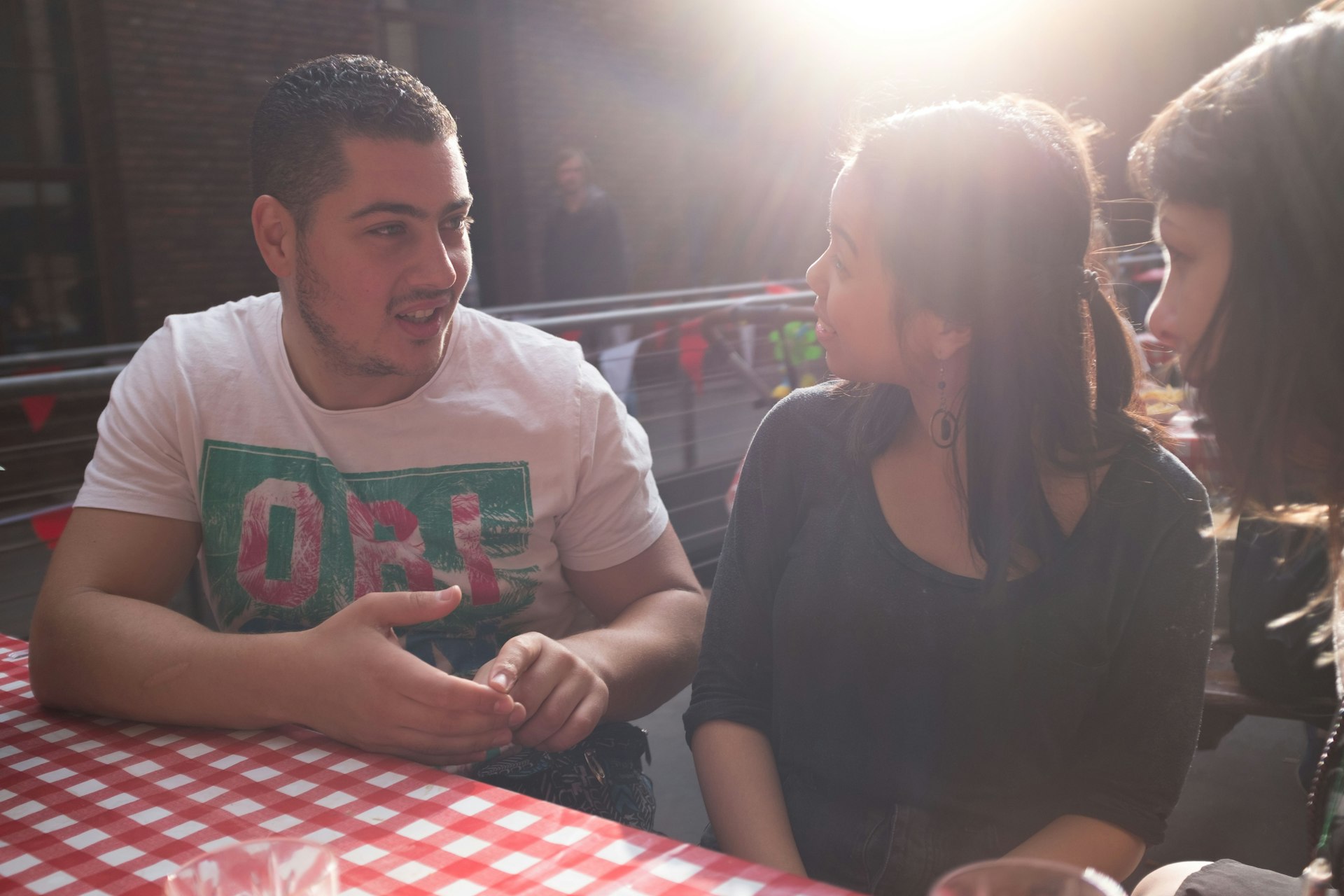
Amjad
“Community is very difficult in Berlin,” he tells me. “It’s so difficult here to find culture, to find friends. This organisation helps you to find that.”
Amjad has been in Berlin for almost nine months, and is currently living in a shelter with around 500 other people, at two or three to a 10-metre-square room. Again, though, he tells me that the bigger problem is forming a life with only the unwieldy government-run integration course for help.
“You have a lot of problems when you arrive here,” he tells me, “for flat, for living, for salary, for work, for study, for language. You don’t have any time to search for friends. The key of this country is learn the language, I think, but then you need to get work, to get papers.”
In the cooking group however, Amjad not only gets to practice new languages, but he meets people who have the potential to help further. “Maybe when you go and find a friend in this sort of event they help you with a lot of things,” he says with deep sincerity. “For a flat, for living – maybe even for work.”
And this is at the heart of Give Something Back to Berlin – an organisation that the government recognises is necessary, but has neither the infrastructure nor flexibility to fund, let alone implement themselves. According to Ricarda Bochat, who now helps to manage the cooking group, creativity and innovativeness are vital when working independently of the state – and such independent initiatives can perhaps achieve more anyway. “A lot of the things we do here would probably take years to develop within that bureaucratic structure”, Ricarda comments. “There are a few people who saw a need to break through those structures.”
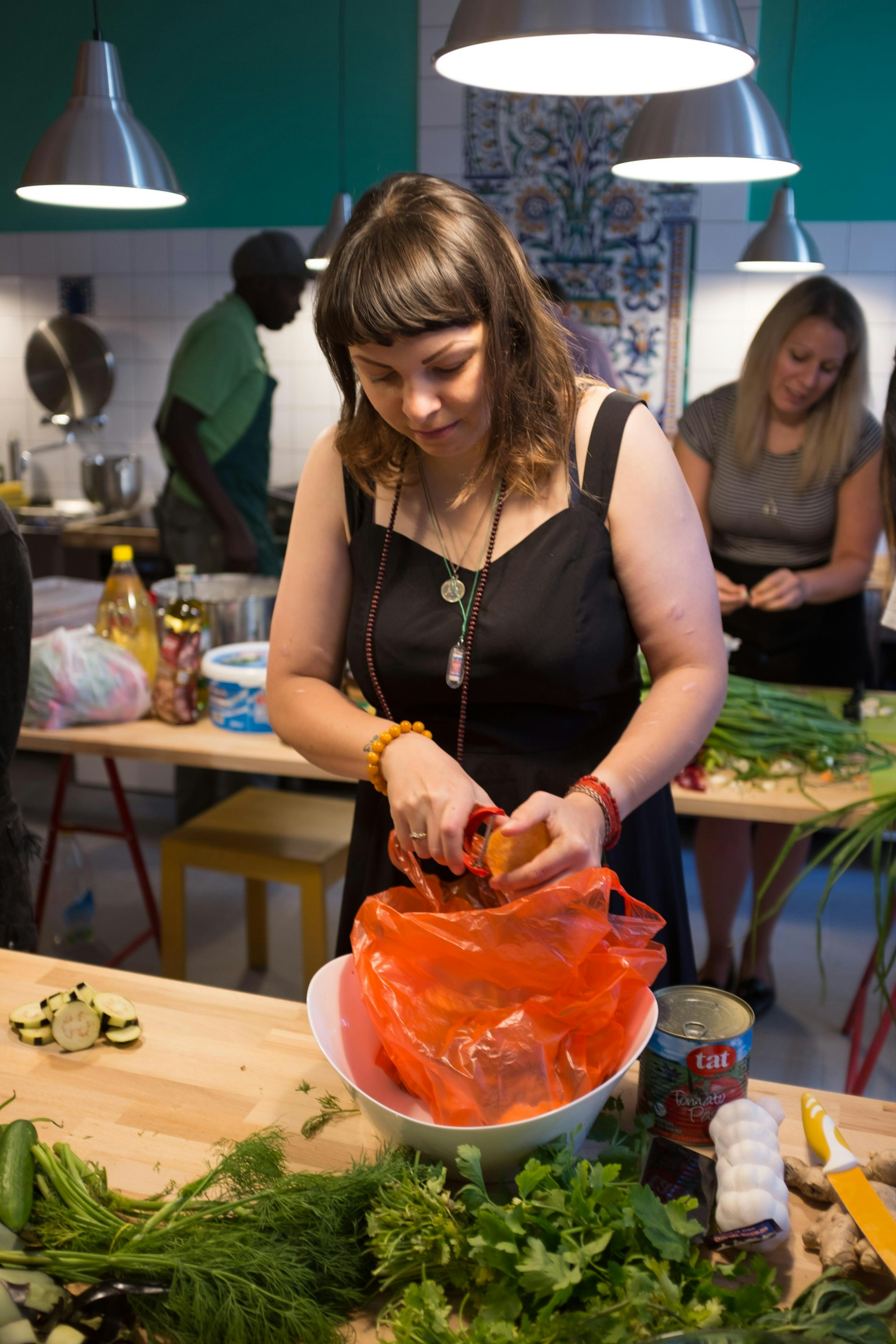
Ricarda
“It’s not supposed to stick a finger to anyone – it’s just supposed to work,” she continues, observing that it’s flexible and innovative groups such as this which are forcing change in systems too slow for the changing pace of the world. Over the course of the movement’s history, refugees have been forced into and from various camps and makeshift squalid accommodations, as well as endured heavy police siege – but projects such as the cooking group have kept running alongside it all.
She says Give Something Back to Berlin, which recently won an award from the UN, have had interest from other big power structures, such as the SPD (Social Democratic Party), the CDU (Christian Democratic Union), and even a Korean delegation, who have looked to them for guidance around integration. “There are people who look at us now, and are curious as to why it works so well,” she says.
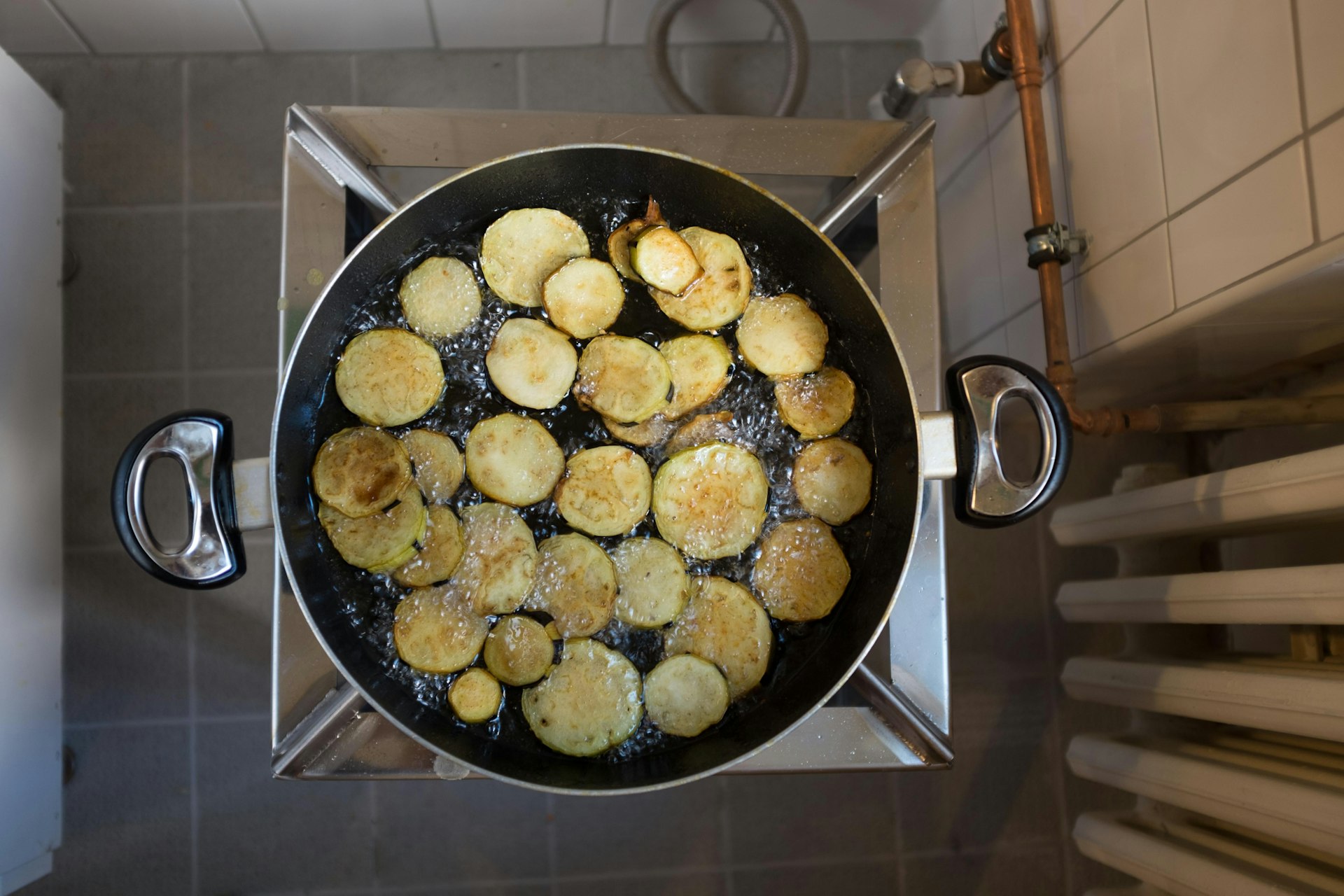
And work it very much seems to. With an upcoming collaboration with the Markthalle Neun street-food collective, the line between social and commercial venture has begun positively to blur, all to the benefit of the organisation and those it supports. “Everyone’s starting to realise that we have to do this ourselves,” Ricarda continues. “All the genuine integration efforts happen on a communal level. It’s so easily done over food, because this is one thing we all need to do – eat.”
It’s this commitment to offering space for real community, where governmental structures fail to do so – across linguistic, cultural, and often nationalistic barriers – that could help to remove the otherness from our differing ways of life. Change, as the group believes, is going to come not on an institutional level, but from those on the ground who are willing to open those doors.
Enjoyed this article? Like Huck on Facebook or follow us on Twitter.
